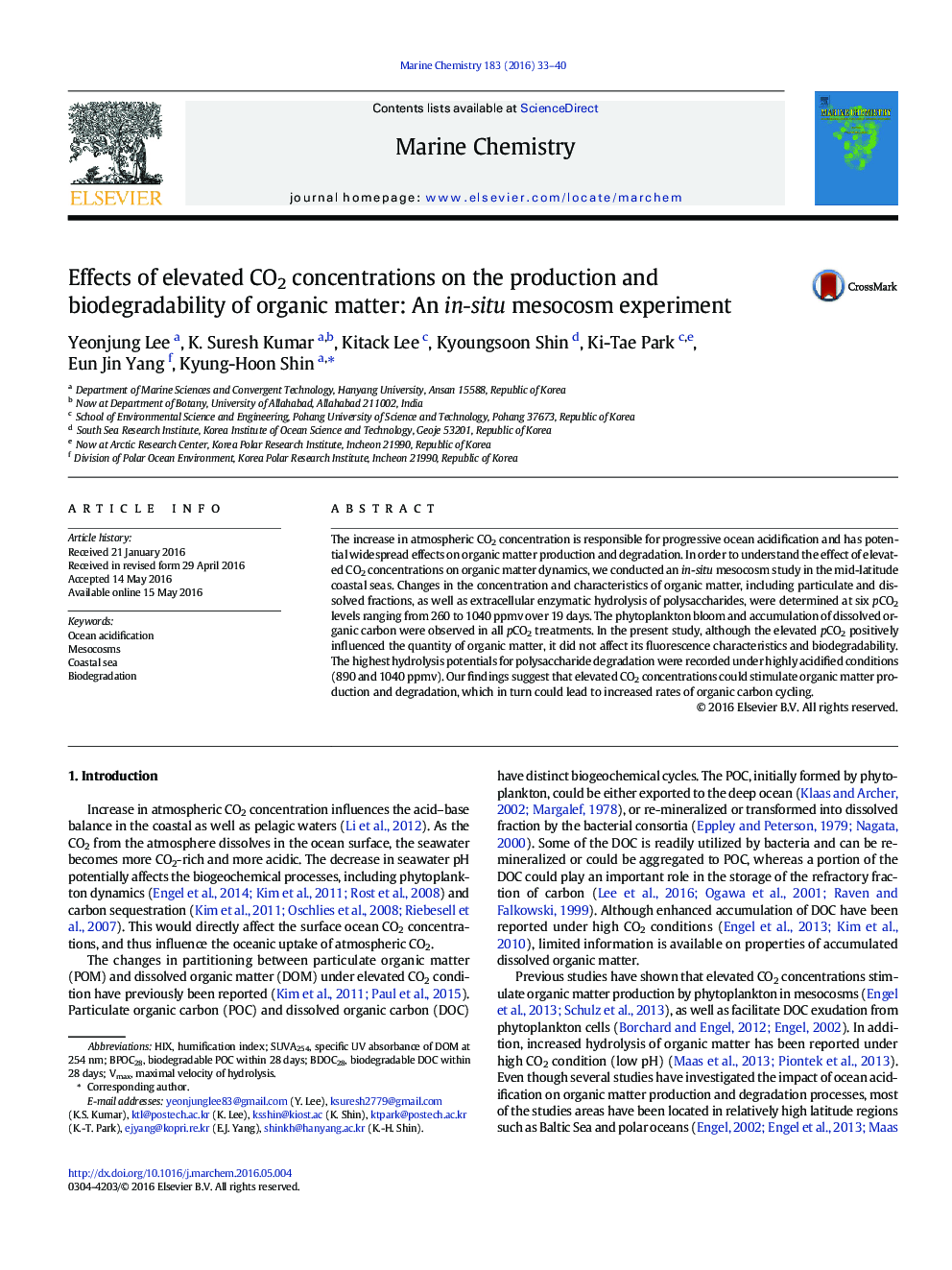| Article ID | Journal | Published Year | Pages | File Type |
|---|---|---|---|---|
| 1260903 | Marine Chemistry | 2016 | 8 Pages |
•Elevated pCO2 positively influenced organic matter concentrations under adequate nutrients.•Organic matter fluorescence characteristics and biodegradability were not affected.•Greater rates of polysaccharide hydrolysis occurred in the highly acidified enclosures.•Elevated CO2 concentrations stimulate organic matter production and degradation in the mid-latitude coastal seas.
The increase in atmospheric CO2 concentration is responsible for progressive ocean acidification and has potential widespread effects on organic matter production and degradation. In order to understand the effect of elevated CO2 concentrations on organic matter dynamics, we conducted an in-situ mesocosm study in the mid-latitude coastal seas. Changes in the concentration and characteristics of organic matter, including particulate and dissolved fractions, as well as extracellular enzymatic hydrolysis of polysaccharides, were determined at six pCO2 levels ranging from 260 to 1040 ppmv over 19 days. The phytoplankton bloom and accumulation of dissolved organic carbon were observed in all pCO2 treatments. In the present study, although the elevated pCO2 positively influenced the quantity of organic matter, it did not affect its fluorescence characteristics and biodegradability. The highest hydrolysis potentials for polysaccharide degradation were recorded under highly acidified conditions (890 and 1040 ppmv). Our findings suggest that elevated CO2 concentrations could stimulate organic matter production and degradation, which in turn could lead to increased rates of organic carbon cycling.
